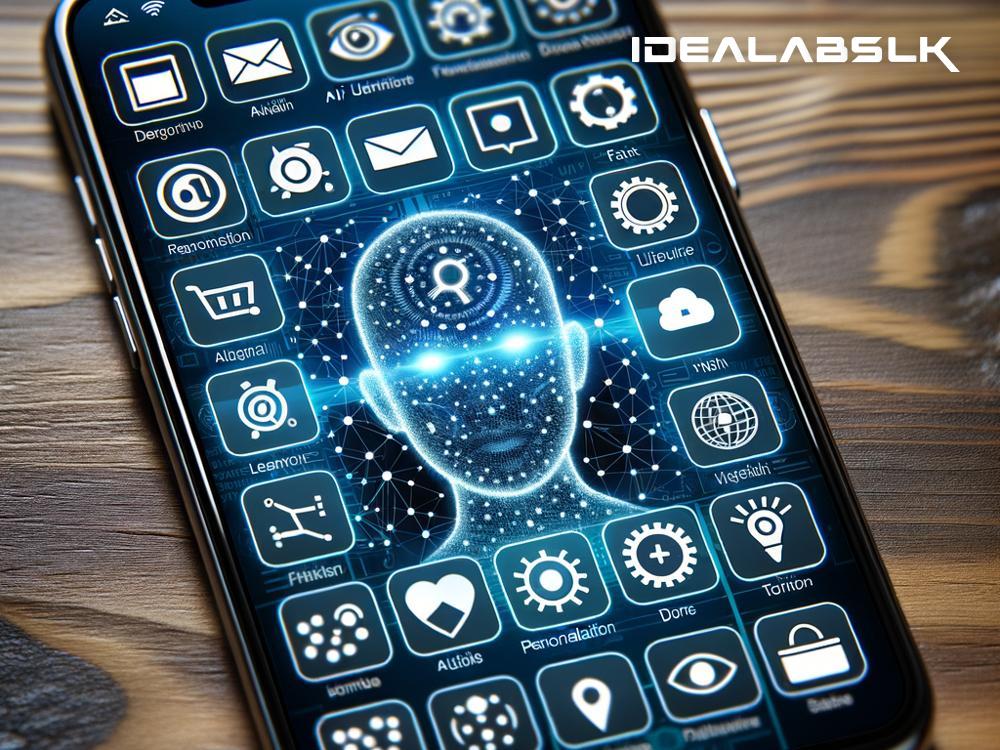Title: The Magic Touch: How AI Is Transforming Mobile App Personalization
In today's bustling digital landscape, where your smartphone feels like an extension of yourself, personalization has become the golden ticket for mobile apps striving to stand out. It's no secret that we all want to be treated as unique individuals, rather than just another user among millions. Enter Artificial Intelligence (AI) – the game-changing technology that's reshaping how we interact with mobile apps. Its influence has been so profound that it feels like we've stepped into an era where our apps know us better than we know ourselves. Let's explore how AI is revolutionizing the personalization of mobile apps, making them not just smart, but genuinely insightful.
AI and The Dawn of Personalized User Experiences
First, what do we mean by personalization in mobile apps? Imagine logging into a streaming service and immediately finding a carefully curated list of movies you're guaranteed to enjoy, or opening a shopping app that knows your style so well, it feels like browsing through your dream wardrobe. That's personalization – the app's ability to tailor its content and recommendations specifically to you, based on your interests, behaviors, and preferences.
So, how does AI breathe life into this concept? The magic begins with AI's ability to learn and adapt. Through machine learning algorithms, AI studies how you interact with apps – the genres you love, the products you browse, the content you engage with – and uses this data to predict what you might like next. It's as if the app develops a "sixth sense," fine-tuning its recommendations to make them astonishingly accurate and personal.
The Role of AI in Making Mobile Apps Smarter
Beyond just suggesting which movie to watch or product to buy, AI's role in mobile app personalization spans several exciting dimensions:
-
Content Customization: News and content apps use AI to filter and prioritize articles, videos, and topics based on what you usually enjoy reading or watching. This means you spend less time sifting through irrelevant content, making your app experience more engaging and valuable.
-
Predictive Text and Voice Recognition: Ever noticed how your keyboard app predicts your next word or how virtual assistants understand your queries more accurately over time? That's AI at work. By learning from your past inputs, AI enhances text prediction and voice recognition, making interactions with apps faster and more natural.
-
Intelligent Reminders and Notifications: AI-powered apps can analyze your routines and habits to send timely reminders for activities you might forget, like drinking water or standing up after long periods of sitting. Similarly, notifications about sales in your favorite shopping app can be timed based on your past purchase behavior, making them more relevant and less invasive.
-
Enhanced Security: Personalization isn't just about convenience; it's also about security. AI helps in detecting unusual app usage patterns that could indicate a security breach, offering a customized layer of protection based on your behavior.
The Future of App Personalization with AI
As AI technology evolves, the future of mobile app personalization looks brighter than ever. We're moving toward a scenario where apps could predict our needs before we even articulate them. Imagine a fitness app that not only tracks your workouts but also suggests the best exercises based on your mood, weather conditions, and past injury history. Or a financial app that doesn't just categorize your expenses but provides personalized saving tips, considering your spending habits and financial goals.
Moreover, with advancements in AI and natural language processing, apps will become more conversational, understanding not just the words we type or say, but the context and emotions behind them. This will open up new avenues for personalization, making our interactions with apps more intuitive and human-like.
Embracing the Personal Touch
In conclusion, AI's role in revolutionizing mobile app personalization is undeniable. It's not just about making apps smarter; it's about making them more attentive, understanding, and, ultimately, more helpful. By leveraging AI, developers can give their apps a personal touch that resonates with users on an individual level, fostering a sense of connection and loyalty.
As users, while we enjoy the benefits of this highly personalized experience, it's also crucial to be mindful of the data we share and understand how it's used. The magic of AI-powered personalization comes with a responsibility to protect our digital footprints.
In the era of digital personal assistants and AI-driven recommendations, the future of mobile apps is not just personalized; it's distinctly personal. The magic touch of AI is gently guiding us into a future where our apps understand us better, perhaps, than we understand ourselves.

